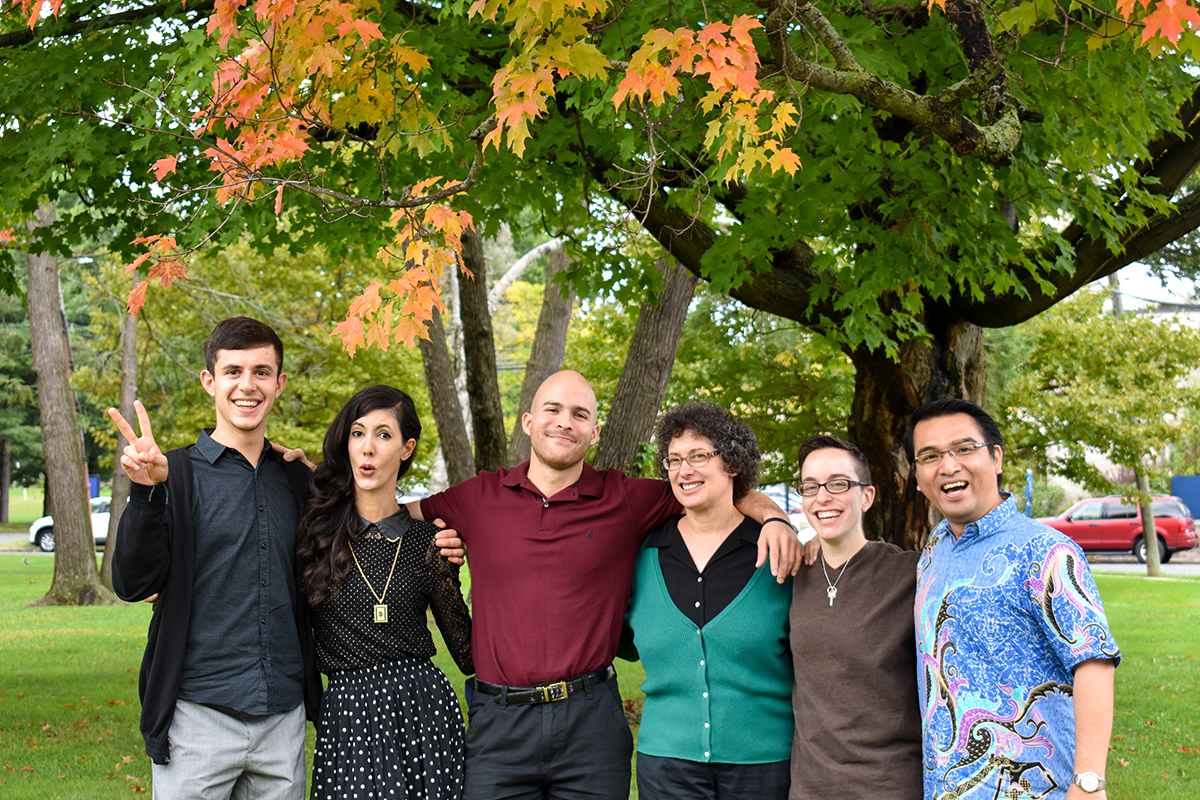Through Peacebuilding We Learn That Our Liberation is Bound Together

When I first started at Hartford Seminary in 2015 I hung a sign on my office door. It is a quote from Aboriginal activists that says, “If you have come to help me you are wasting your time. But if you have come because your liberation is bound up with mine, then let us work together.” It has been a joy in the years since to see many students come through Hartford Seminary’s International Peacemaking Program (IPP) and watch them grow in their understanding of how their liberation – as Christians, Muslims, and Jews, as citizens of many countries, as men and women, as LGBTQ and straight, as people of many ethnicities – was bound up together.
In evaluating IPP over several years, it was clear that students had loved their experience in Hartford, had been profoundly affected by the learning, and needed more from us. They asked for more skill-building work and greater integration of that work into the curriculum. They asked for more community engagement and more opportunities to apply the skills they were learning. Students were telling us that they wanted to roll up their sleeves and work harder in practical, real-world ways.
Master’s Program With Focus on Interreligious Literacy & Peacebuilding
IPP was designed as a graduate certificate. However, it was notable that a large majority of IPP alumni sought ways to continue their education in order to return home with a master’s degree. The challenge was clear: the students who come to us are deeply committed to interreligious peacebuilding, and they need a master’s degree program that integrates interreligious literacy with practical approaches to building peace in their communities. It was a challenge we met by reformulating IPP as a professional master’s degree that could be completed in one year.
There were several principles that guided the team that built the curriculum. The first of these is the nature of peacebuilding itself: Peacebuilding is justice-oriented and relationship-based. Just looking at our course titles you can see the twinned emphases on justice and relationships, e.g. Building Peace after Collective Trauma, Peace; Justice, and Violence in Sacred Texts; Identity and Otherness in Religious Communities.
Transferring Life Experience to Learning
Our work was also guided by the principle of transfer: the capacity for students’ life experience to enhance their learning, and for that new learning to influence their ongoing life experiences. We want students to bring what they learn in the classroom to their experiences and to bring what they learn in Hartford back into the classroom. We want them to bring their perspectives from home, be that Nigeria or Nevada, to their work at Hartford Seminary, and when they go back to Nigeria and Nevada to have the confidence to apply what they have learned.
Two curricular elements that promote transfer are experiential learning and authentic assessment. Experiential pedagogy stresses that preparation plus concrete experience plus reflection creates a depth of student engagement that influences not only thinking, but also behavior. Rather than only read about collective trauma, students may attend a Maafa – a theatrical representation of the Middle Passage and enslavement – so they can connect with the emotional resonance of that trauma. They will use case studies to investigate the use of sacred texts to promote peace or violence around issues such as women’s reproductive health or migrants from the Middle East. They will use role plays to practice constructive conflict skills. They will meet with religious leaders involved in changing their communities. Students will participate in two semesters of Field Education, which combines service-learning placements at organizations in Greater Hartford with the study of how change happens through projects and social movements.
Authentic assessment asks students to perform tasks that relate to real-world activities. Students may be asked to initiate an email conversation with their pastor, imam, or rabbi at home about trauma-aware worship. Or reflect on their use of paraphrasing in a recent contentious conversation. Or do a stakeholder analysis for a project at their service placement organization. Students will complete their degree with capstone projects back in their home country.
The MA in International Peacebuilding builds upon what Hartford Seminary has long done well: inter-religious theological education, skill-building work, and the beloved community of the residential experience. On this foundation, my team and I have crafted the MA in International Peacebuilding Program to be immersive, experiential, and community-driven. Our vision is of students who learn and practice the ideas and skills of interreligious peacebuilding in our nurturing environment. Then we’ll send them back into the world ready to work in ways that are justice-oriented and relationship-based. “Peacebuilding” is, of course, just another way of saying that our liberation is bound up together.
